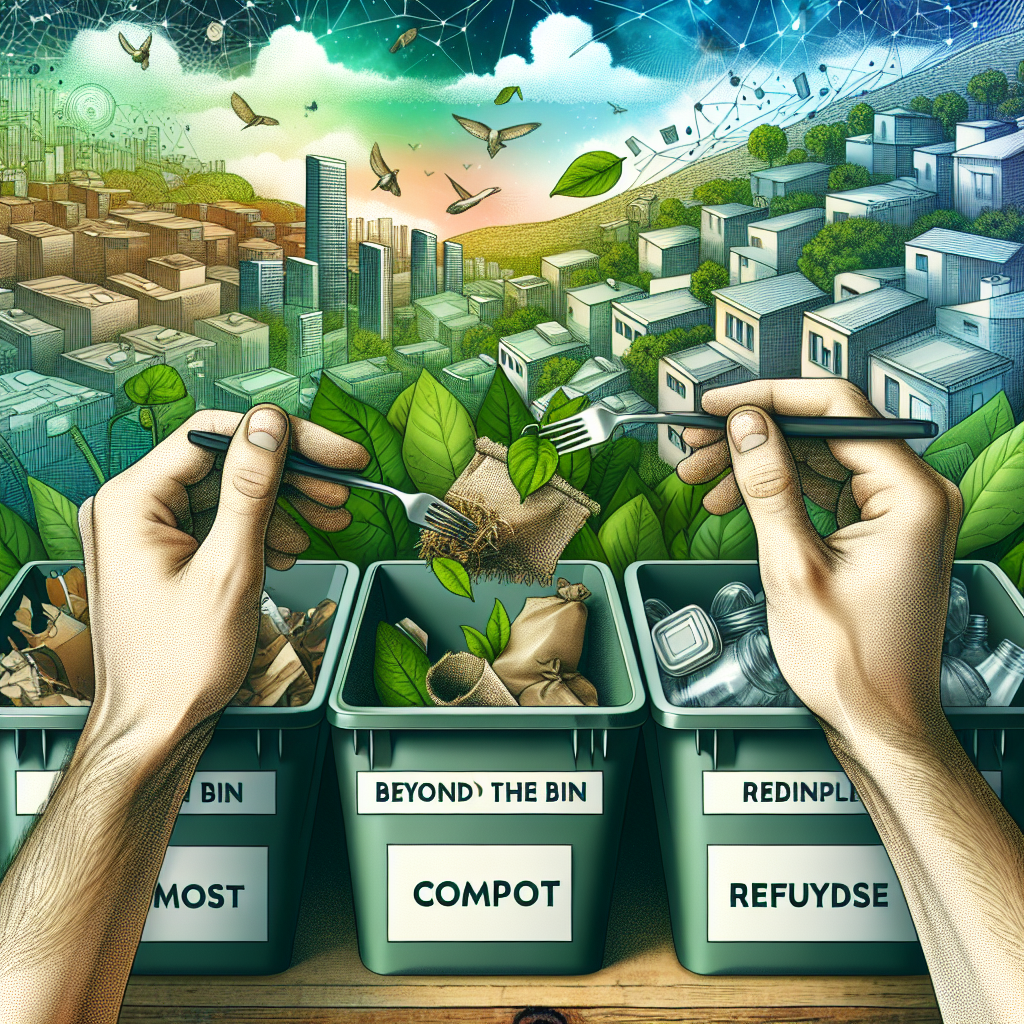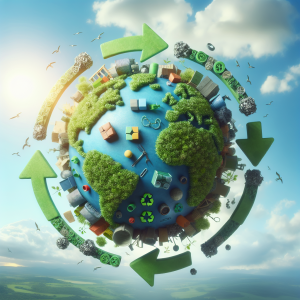In recent years, the term “zero waste” has transitioned from a mere buzzword to a philosophy that is reshaping how we think about consumption, waste, and our relationship with the planet. While many associate zero waste with recycling or composting—putting emphasis on what happens “in the bin”—the movement extends far beyond these actions, advocating for systemic change in how we produce, consume, and dispose of materials. This article delves into the underlying philosophy of zero waste, exploring its principles, individual and collective responsibilities, and its potential to create a sustainable future.
The Zero Waste Philosophy: More Than Just Recycling
1. The Philosophy Behind Zero Waste
At its core, the zero waste philosophy is rooted in the concept of sustainability: meeting our needs today without compromising the ability of future generations to meet theirs. It challenges the linear model of consumption, which follows a ‘take, make, dispose’ approach. Instead, zero waste promotes a circular economy where products are designed with their entire life cycle in mind.
Key Principles of Zero Waste:
- Refuse: Choosing not to engage in wasteful practices or accept unnecessary items.
- Reduce: Minimizing consumption and buying only what is essential.
- Reuse: Finding new uses for items instead of discarding them.
- Recycle: Processing materials to create new products—though this should be a last resort after refusing, reducing, and reusing.
- Rot: Composting organic waste to return nutrients to the earth.
2. Cultural Shift and Mindset Change
The transition to a zero waste lifestyle is as much about changing our mindset as it is about changing our habits. It requires individuals to reassess their relationship with material possessions, rethinking concepts of convenience, and prioritizing sustainability over short-term gratification.
3. Holistic Approach: Engaging Communities
Zero waste isn’t solely an individual responsibility. The philosophy calls for collective action and community involvement. Local governments, businesses, and organizations play pivotal roles in fostering environments conducive to zero waste practices. Initiatives like community composting programs, repair cafes, and educational workshops are vital in building awareness and participation.
4. Redefining Success: Economic Implications
The economic implications of adopting a zero waste framework are profound. Instead of measuring success solely by profit margins, businesses can benefit from rethinking resource use, reducing costs involved in waste disposal, and attracting consumers who prioritize sustainability. Companies that implement sustainable practices often witness increased customer loyalty and engagement.
5. Advocacy and Policy Change
The zero waste philosophy encourages advocacy for policies that promote sustainable practices at various levels of government. Effective legislation can support waste reduction goals, incentivize recycling, and penalize polluting behaviors. Collaborative efforts between activists, businesses, and government agencies can drive systemic change, creating a more sustainable future.
6. Challenges and Misconceptions
Despite its merits, the zero waste lifestyle is not without challenges. Misunderstandings persist. Critics argue that zero waste is impractical for busy urban dwellers, while others believe it is a privilege not afforded to everyone. Proponents counter that zero waste is adaptable and can be scaled across all demographics with the right support systems. The challenge lies in making resources and alternatives accessible to all.
Conclusion: A Commitment to Change
Zero waste is more than a lifestyle choice; it is a commitment to reimagining our relationship with the world around us. It invites us to think critically about our consumption patterns, challenge systemic waste production, and consider the long-term impacts of our actions.
As we move further into the 21st century, communities and individuals embracing the zero waste philosophy can begin to forge a resilient path towards sustainability. The journey may be complex, fraught with challenges, and particularly demanding, but the rewards—a healthier planet, sustainable economies, and meaningful community connection—are well worth the effort. By thinking beyond the bin, we embrace a profound shift towards holistic stewardship of our planet.


